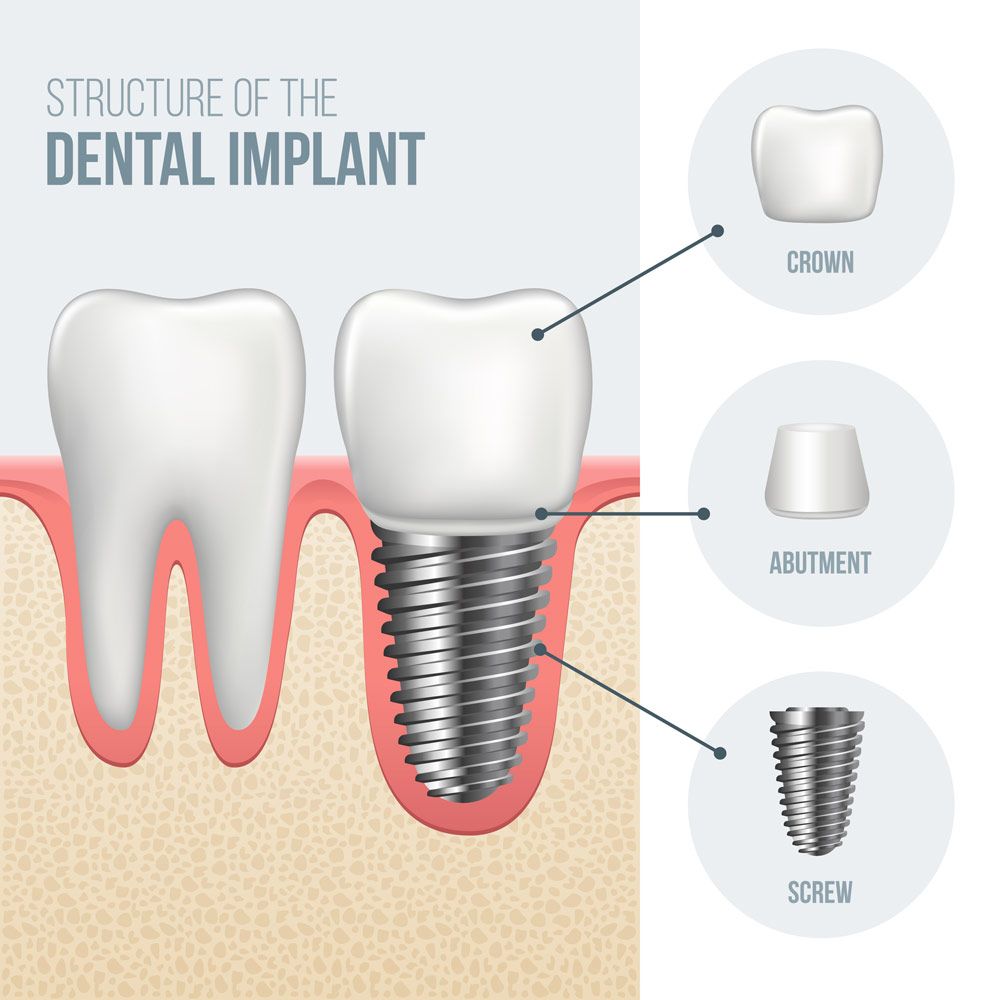If you have missing teeth or heavily damaged teeth that need to be replaced, dental implants may be right for you. Getting a dental implant, consists of a small rod placed within the bone beneath the gums where a tooth once was. The implant fuses with the jaw and eventually serves as an anchor for a crown or other tooth prosthetic. Because of their versatility, dental implants can be used to replace a single tooth or many missing teeth depending on the needs of the patient.

Did you know…
Titanium dental implants carry a high rate of osseointegration with surrounding bone. Not only does that contribute to their strength and durability, but it also translates to a much higher success rate for dental implant patients. In fact, more than 93 percent of all dental implant procedures are successful.
Frequently Asked Questions
Is it painful to get dental implants?
No. Dental implant procedures are generally painless in our office. Our office is equipped with state of the art technology that expedites the implant process and reduces pain and swelling. Sedation and anesthetic is also available to minimize discomfort during the implant process. Pain management options are available to individuals who experience discomfort during the healing and recovery period.
Is there a benefit to choosing dental implants over other dental prosthetics?
Implants are the clear choice in dental prosthetics, as they offer benefits that dentures and bridges alone are incapable of providing. Made from titanium, these prosthetics are designed to last a lifetime in most patients. Furthermore, they are as strong, functional and aesthetically appealing as natural teeth. Implants also help preserve facial structure, preventing bone deterioration that occurs when teeth are missing. Most importantly, dental implants fully replace the original tooth root, preventing jaw atrophy that is common with other tooth replacement options, such as dentures.
How long does this process take?
First, implants are placed within your jawbone which should only take at most a couple of hours in your oral surgeons office. For the first three to six months following surgery, the implants are beneath the surface of the gums gradually bonding with the jawbone. You should be able to wear temporary dentures and eat a soft diet during this time. At the same time, your dentist is forming new replacement teeth.
After the implant has bonded to the jawbone, the second phase begins. Dr. Kikuchi will uncover the implants and attach small posts that protrude through the gums and will act as anchors for the artificial teeth. When the artificial teeth are placed, these posts will not be seen. The entire procedure usually takes six to eight months. Most patients experience minimal disruption in their daily life.